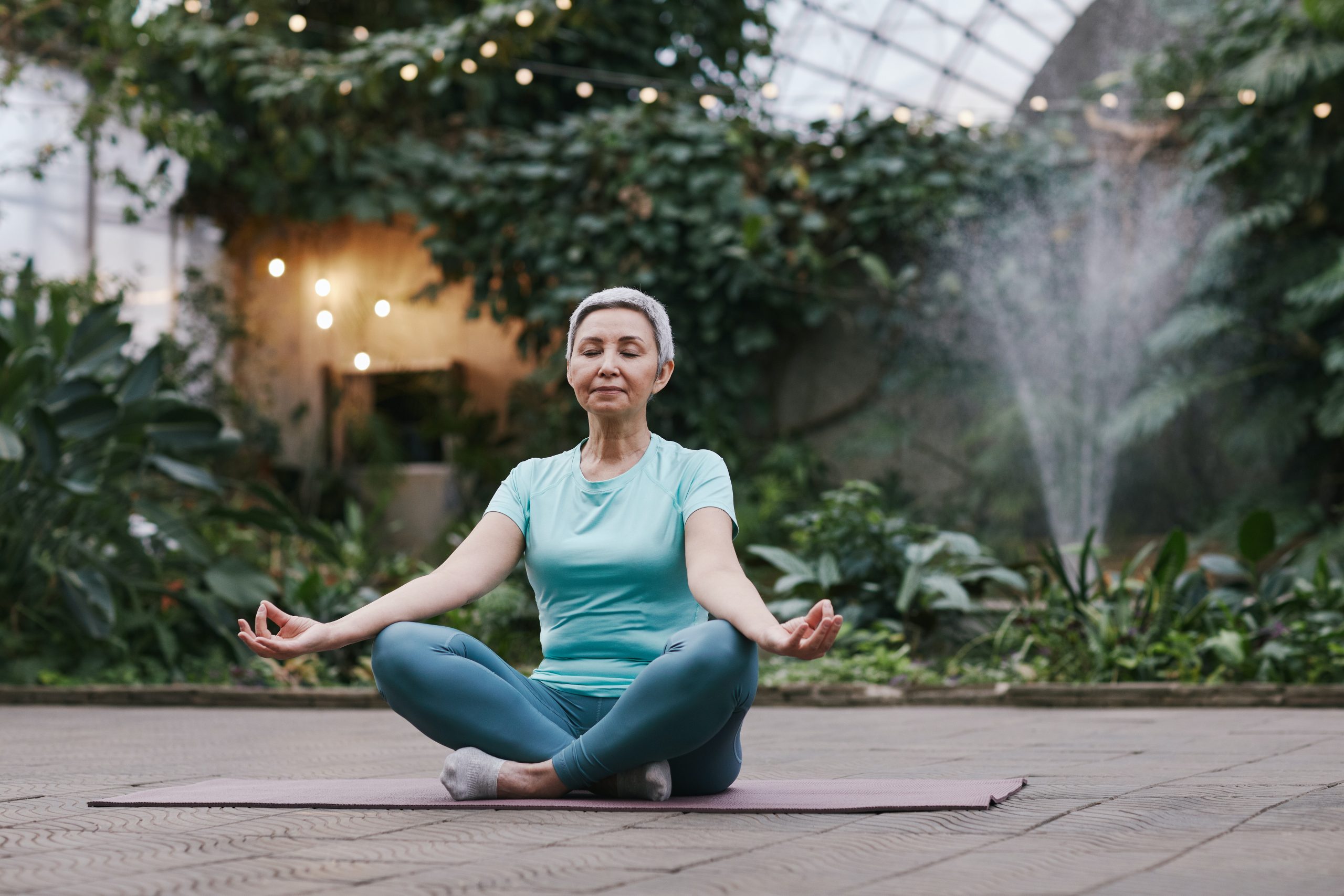Mindfulness is associated with numerous benefits, from decreased stress to improved self-esteem to better mental and physical health. People who cultivate mindfulness also tend to have more gratitude in daily life, regardless of their external circumstances.
It’s easy to dismiss mindfulness and assume you’re too busy for it. But learning to live in the present moment is truly a moment-by-moment choice. When you harness practicing mindfulness, you can genuinely learn how to be mindful anywhere and at any time.
Set a Timer to Meditate for Five Minutes Each Day
Mindfulness meditation doesn’t need to be long to be effective. Even just a few moments of taking deep breaths can make a big difference in helping you stay more present.
When you start your meditation, sit comfortably and take three deep breaths. As you breathe deeply, notice how the air feels moving in and out of your body.
As you progress with your meditation, keep breathing deeply and aim to focus on the sensation of breathing. You might find yourself paying attention to other thoughts or physical sensations. That’s okay- as soon as you recognize yourself wandering away from the breath, gently move yourself back.
Keep in mind that, depending on the day, your mind and body will respond to meditation differently. This is common, and there’s no real place for perfectionism in a meditation practice.
Practice Mindful Eating Once a Day
We need to eat multiple times a day, but most people eat on auto-pilot without any awareness of how food tastes or feels in their bodies. Paying more attention at mealtime makes eating more enjoyable, and you can use these built-in breaks to reconnect with yourself. If you’re eating with others, this mindfulness exercise also gives you a chance to focus on your relationships.
Mindful eating simply refers to being more present when you’re eating. This may include noticing and feeling gratitude for the food served, acknowledging various textures, tastes, and temperatures, and noticing how your body responds. Many times, this practice also includes trying to savor and eat your food slowly.
Commit to Kindly and Actively Listening to Others
Genuine connection is the heart of mindfulness. When we’re enjoying our relationships with others, life feels far more meaningful and satisfying.
That said, listening isn’t necessarily an easy skill, but it’s one of the most important mindfulness exercises you can practice with another person. When someone else talks, pay attention to what they’re saying without getting caught up in other distractions. If you don’t understand something, ask a clarifying question.
Keep in mind that active listening can feel anxiety-provoking when you first start doing it. But the more you practice it, the more
Practice Single-Task Mindfulness
We all move through the day completing various items on our never-ending to-do lists. Think about all the tasks you do on a given day, such as washing your face, showering, cooking breakfast, unloading the dishwasher, and opening the mail.
These tasks may seem so mundane that you either multi-task them with other ones. Or, you’re half-distracted and doing them without really paying attention. Either way, these moments provide opportunities for more mindfulness.
For example, when you unload the dishwasher, consider noting how it fully feels to engage in this task. Embrace the textures of the glasses and bowls in your hands. Notice how it feels to place them back in their assigned places. Consider any other sensory cues, such as noise in another room or the smell of dinner cooking.
Radically Accept the Here-And-Now
So much of life is trying to control what will or won’t happen next. And while it’s normal to want to prepare for the future, the reality is that life unfolds in unpredictable ways. In addition, spending time trying to account for all the future scenarios means you may miss out on what’s right in front of you.
Radical acceptance means consciously choosing to embrace the current reality for what it is. Even if you can do this for just a couple of moments at a time, you may find this mindset to feel deeply gratifying. It can allow you to be more present with what’s happening right now, rather than thinking about all the things you have to do next.
Therapy for Increased Mindfulness and Improved Emotional Well-Being
It’s impossible to stay mindful all the time. But if negative thoughts or stress impact your ability to stay present, you’re undoubtedly compromising your emotional health.
That said, many mental health conditions, trauma, and grief can impact your ability to stay mindful in everyday life. Managing these symptoms and establishing a daily routine that implements mindfulness and self-care can help.
I am here to support you on your journey to wellness. Therapy offers a non-judgmental environment to explore your emotions and truly be yourself. I am here to support you.
Contact me today to schedule an initial consultation.

